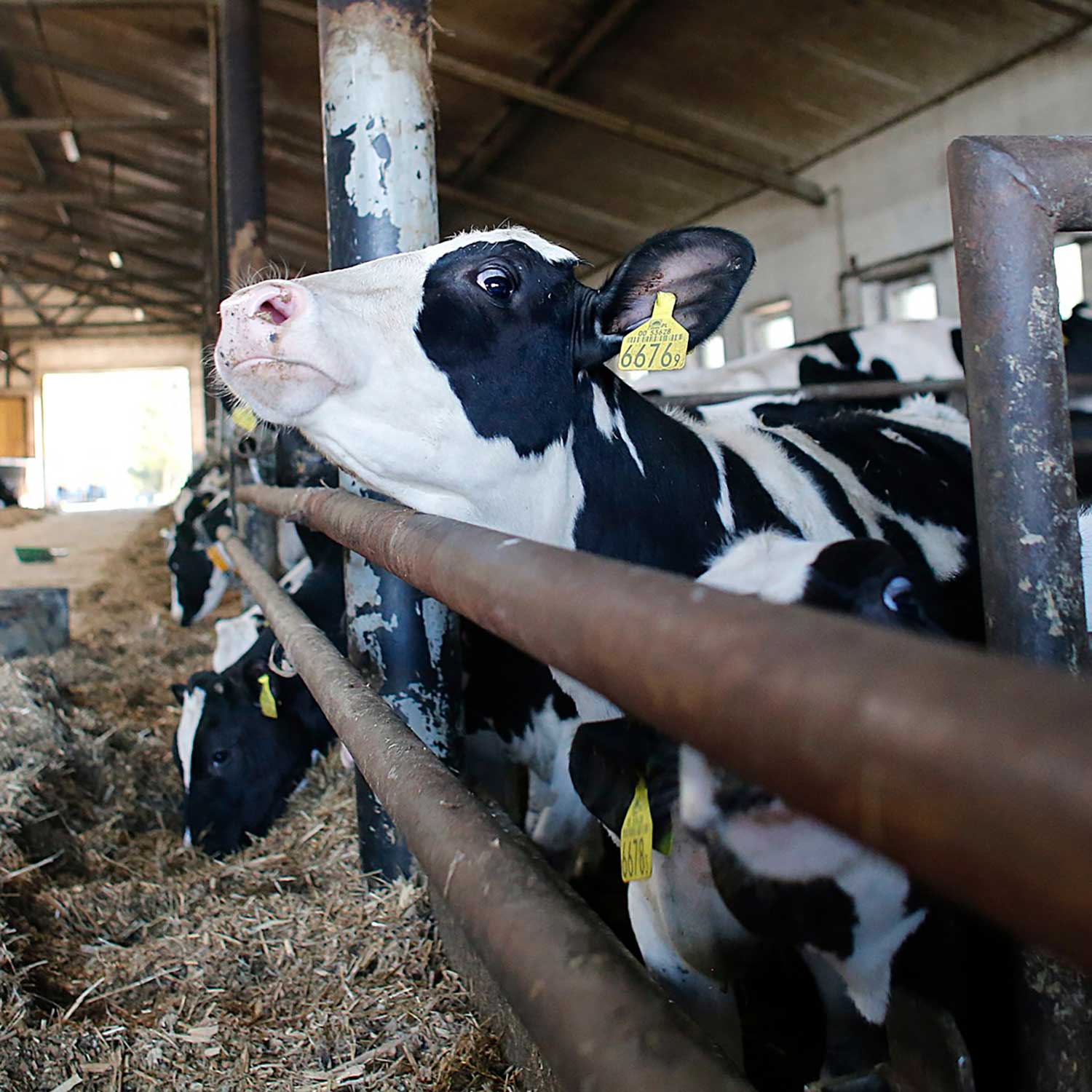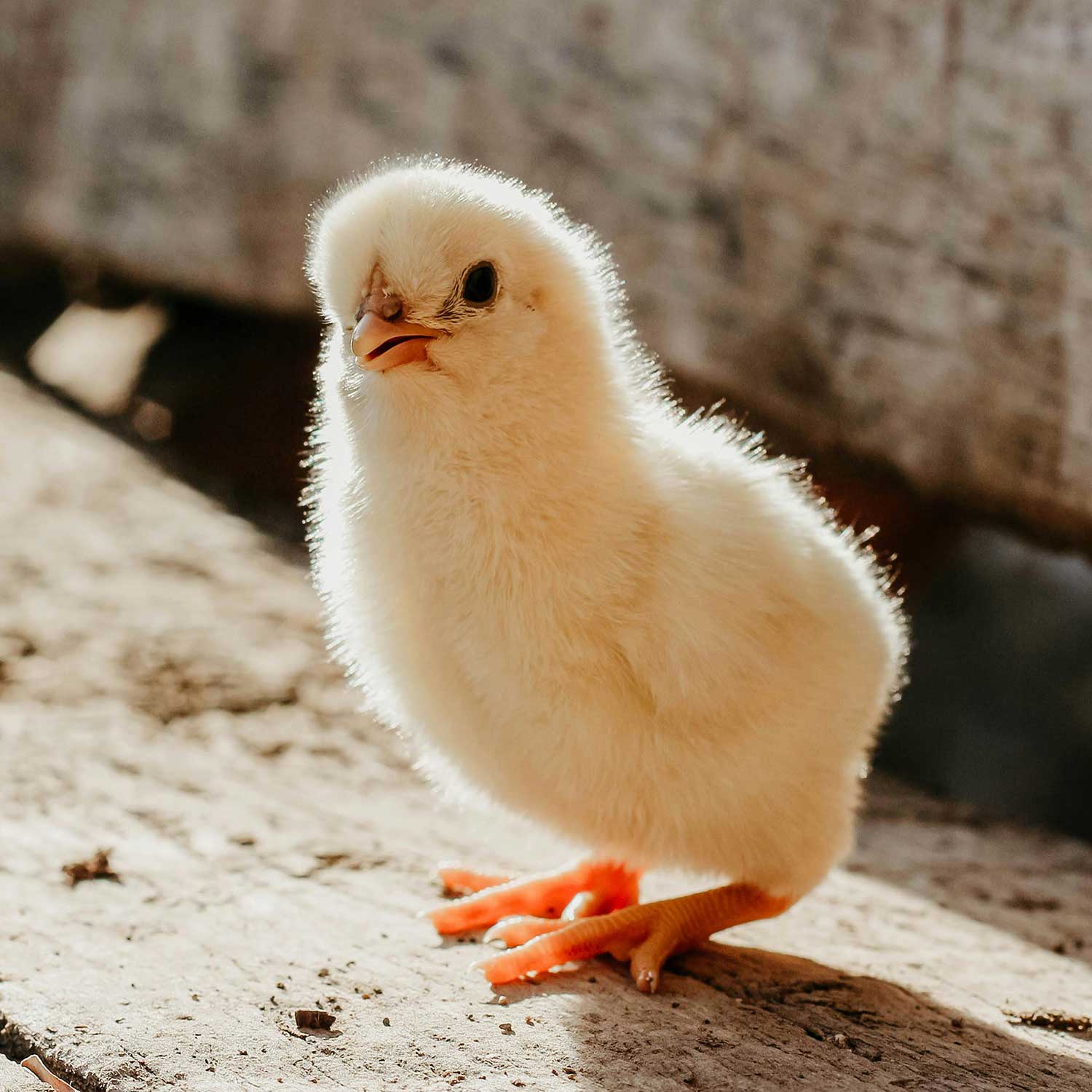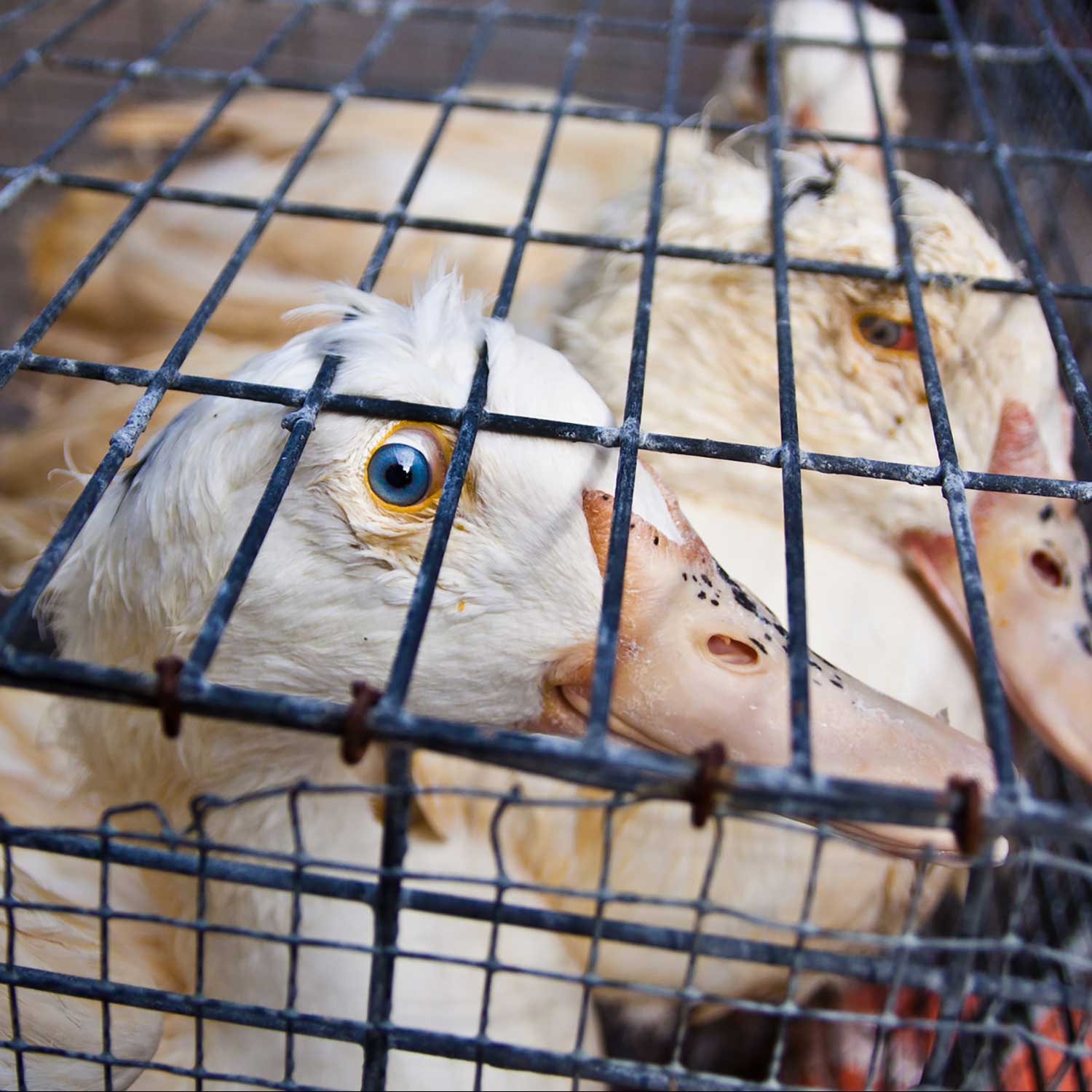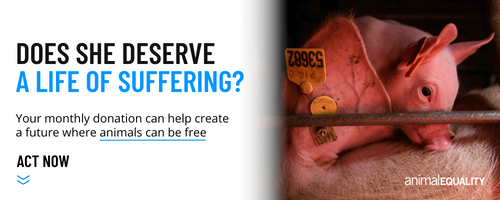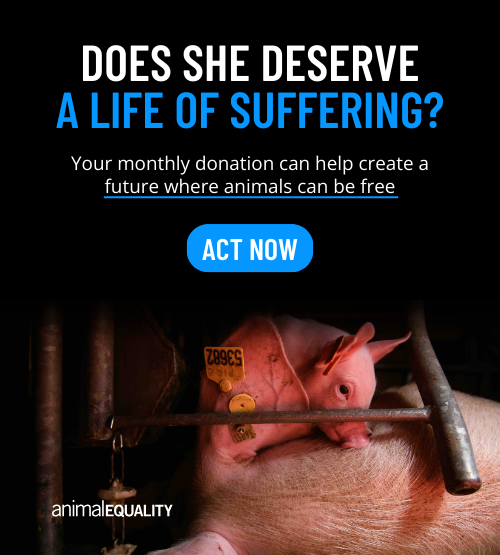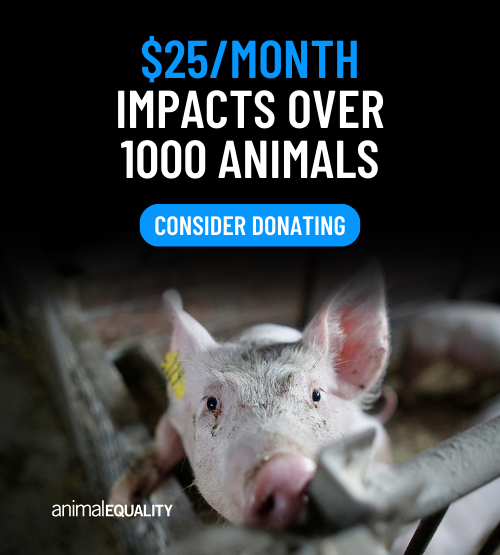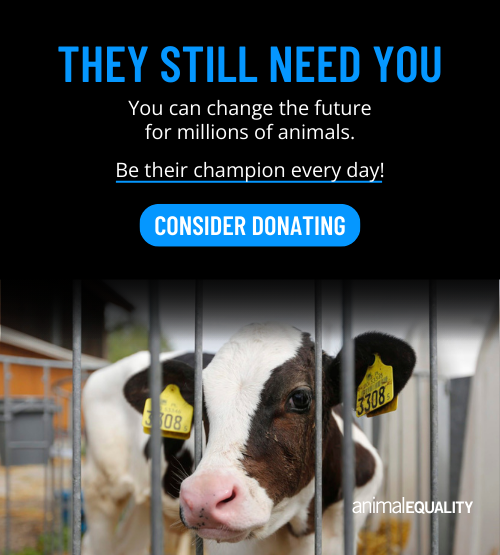Do You Eat Meat? Here are 5 Facts You Should Know.
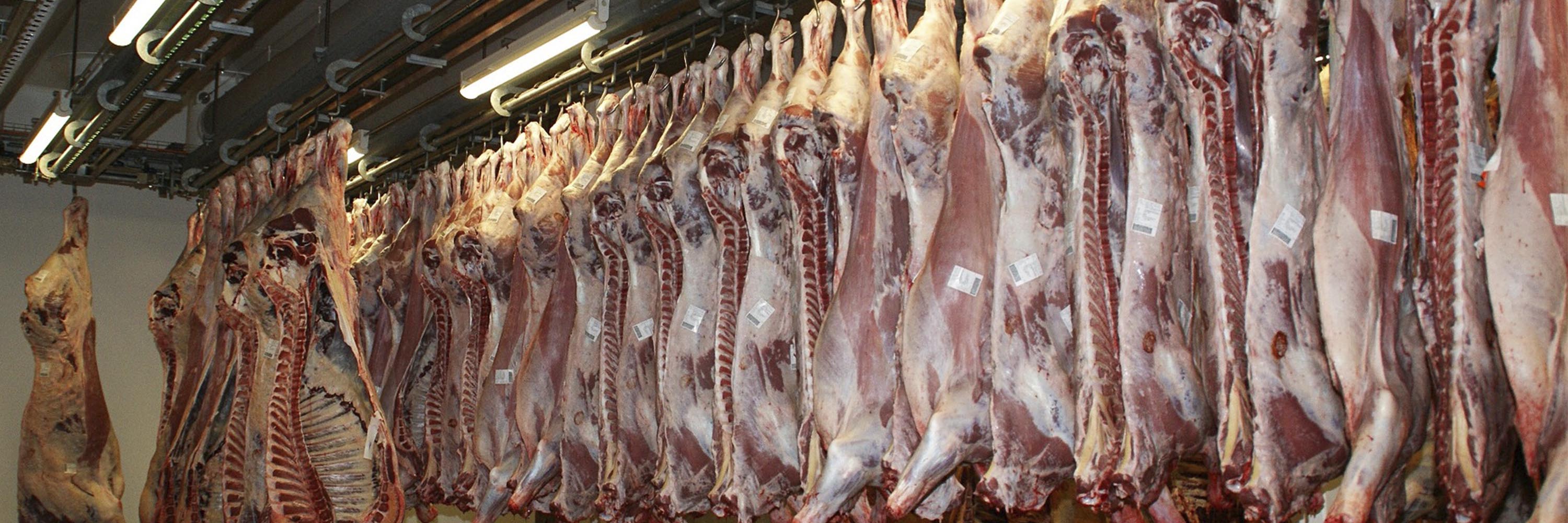
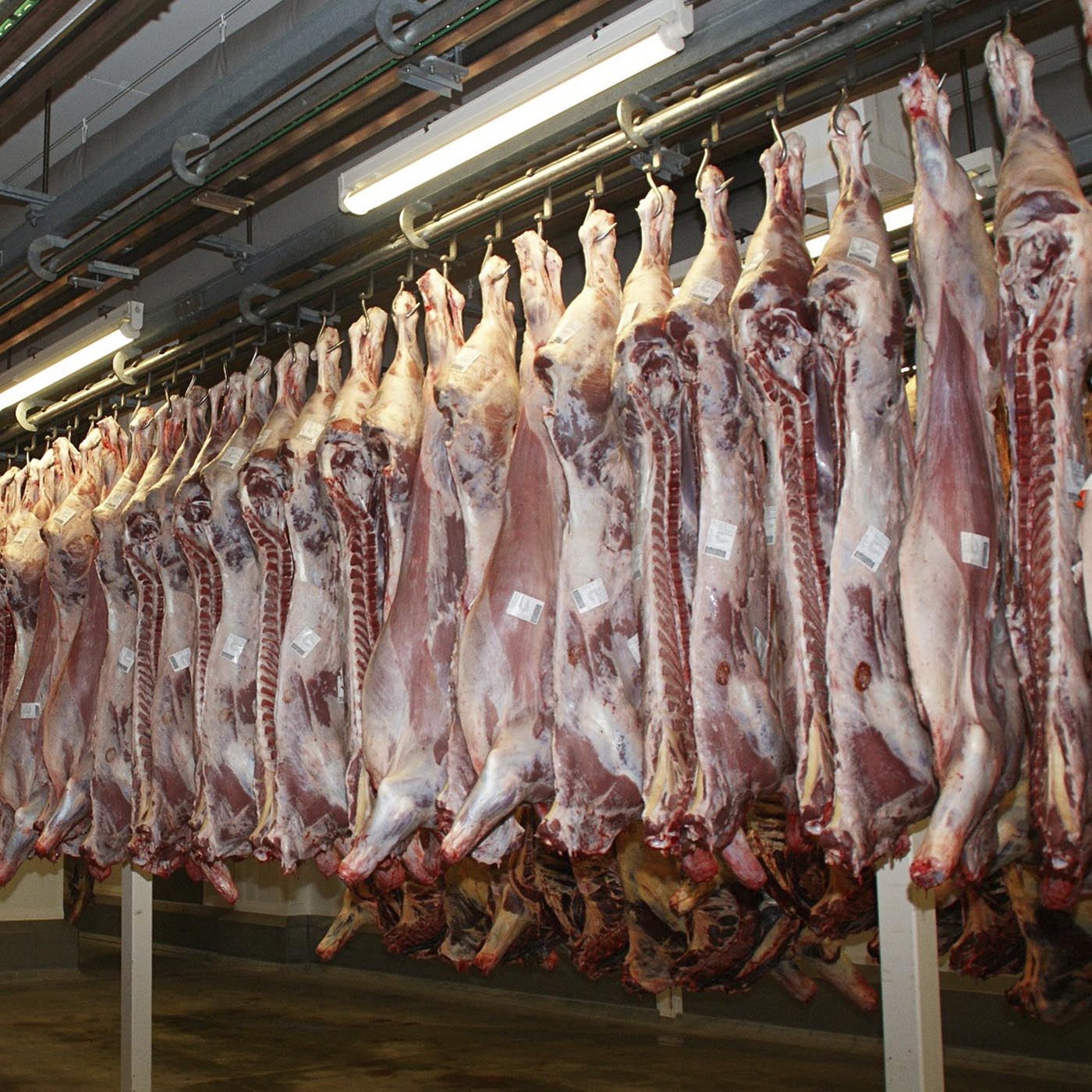
Meat production: it’s an operation filled with chemicals, antibiotics, and contamination. It also consists of hanging animals upside down, beheading them, and slowly bleeding them to death.
In case you’ve ever wondered how meat reaches grocery store shelves, here are the top five things you should know about the process:
1. Sanitary meat? Not so fast…
While alive, a healthy animal’s skin and intestines work as a barrier against bacteria. But when a butcher opens a dead animal, contamination begins. Bacteria can suddenly reach the organs or tissues, sometimes causing infections in people.
It certainly doesn’t help that an animal’s immune system is weakened under stress, making it prone to disease while still alive.
Finally, because fresh or refrigerated meat has high water content, it is prime territory for bacterial growth.
With factory farms and slaughterhouses prioritizing speed and profits, sanitation often takes a backseat.
2. The animal on your plate could have been dead for three weeks
After an animal’s death, its muscles begin to tighten as “rigor mortis” sets in. This process takes up to 72 hours to disappear, depending on the animal. Meanwhile, the animal’s body is hung upside down in a refrigerator so the blood can be thoroughly drained.
For three to four days, meat then enters the “maturation” period before. For veal, maturation can take up to three weeks. Finally, the meat reaches supermarket shelves.
3. We feed animals blood
It can take up to six minutes for an animal to slowly bleed to death. But what happens to all this blood?
The blood is often collected into an industrial container and sent to a warehouse for processing. It will be used to produce fertilizer or, in some cases, food for farmed animals.
4. Drugs, drugs, and more drugs
If there’s one thing the industry does not run short on, it’s medication.
In fact, for each 2.20 pounds of meat produced in Europe, 100 mg of antimicrobials are used. Oddly enough, data from the United States is not publicly available.
But why does the industry pump so much medication into animals’ bodies?
The problem arose in the 1950s, when the industry believed that low doses of antibiotics would speed up animals’ growth. In the United States, it is still legal to use hormones to fatten animals.
Of course, with animals in overcrowded and unsanitary conditions, their immune systems weaken. Rather than cleaning the feces off factory farm floors, the industry gives animals antibiotics. This prevents infections, but it also causes antibiotic resistance in humans.
5. Dog food and hamburgers may come from a paste of waste
Meat is classified as either “fresh” or “processed.” While fresh meat comes from large pieces or whole animal bodies, processed meat includes dog food, hamburgers, hot dogs, and nuggets.
Before a hot dog looks like the food we recognize, it comes from a reddish paste made from many different animals. For this reason, processed meat is often called “mystery meat.”
What’s the alternative?
When given the choice between “mystery meat” and plant-based proteins, millions of people are making the kinder and healthier choice. At Love Veg, you can find a library of resources as you prepare fresh, colorful, and compassionate recipes.
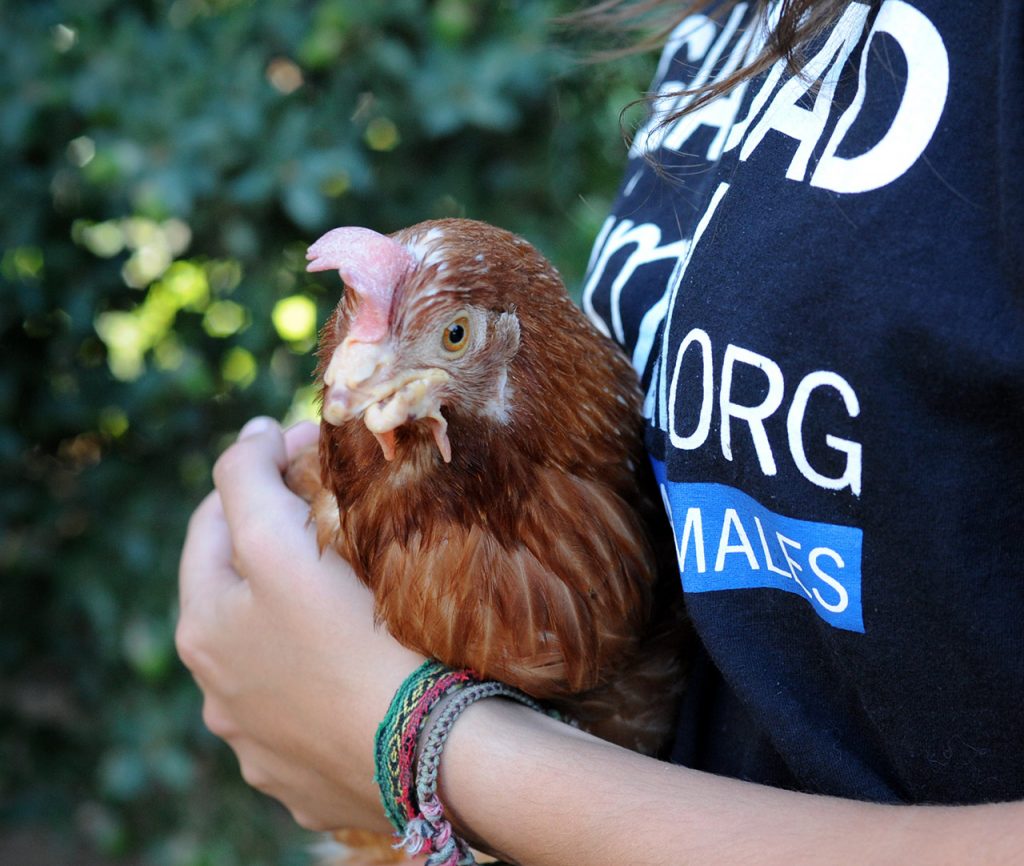
LIVE KINDLY
With rich emotional lives and unbreakable family bonds, farmed animals deserve to be protected.
You can build a kinder world by replacing animal food products with plant‑based ones.

